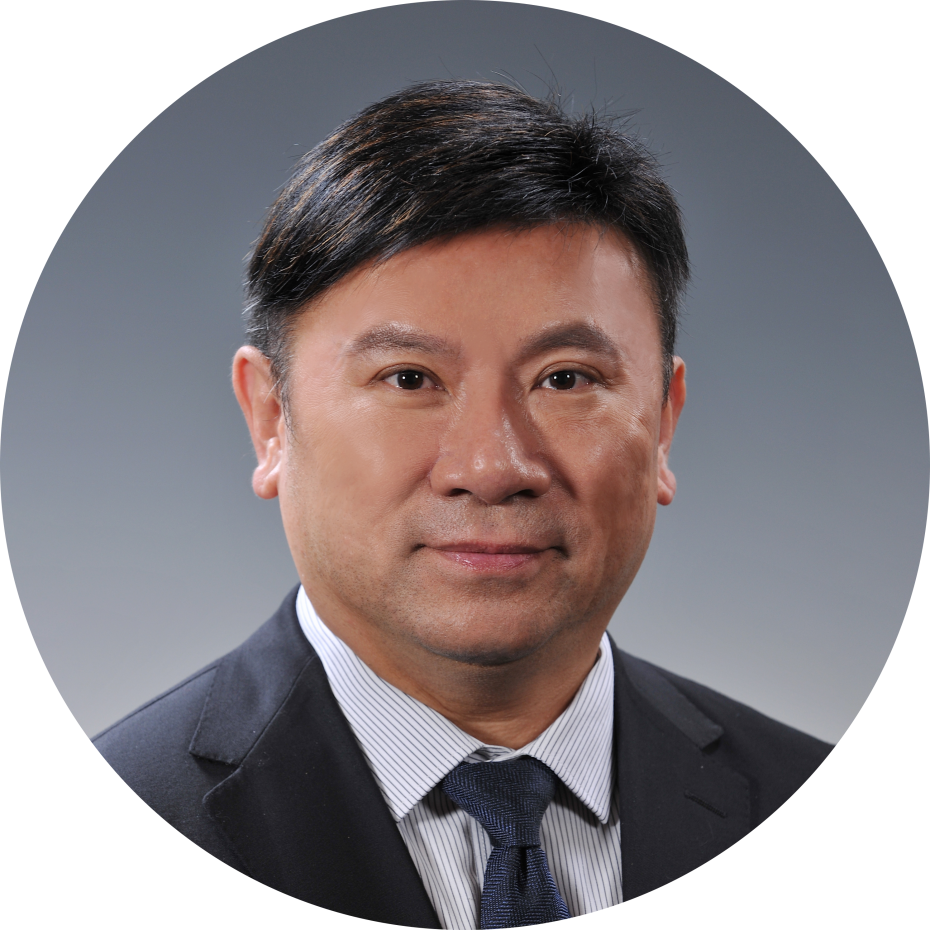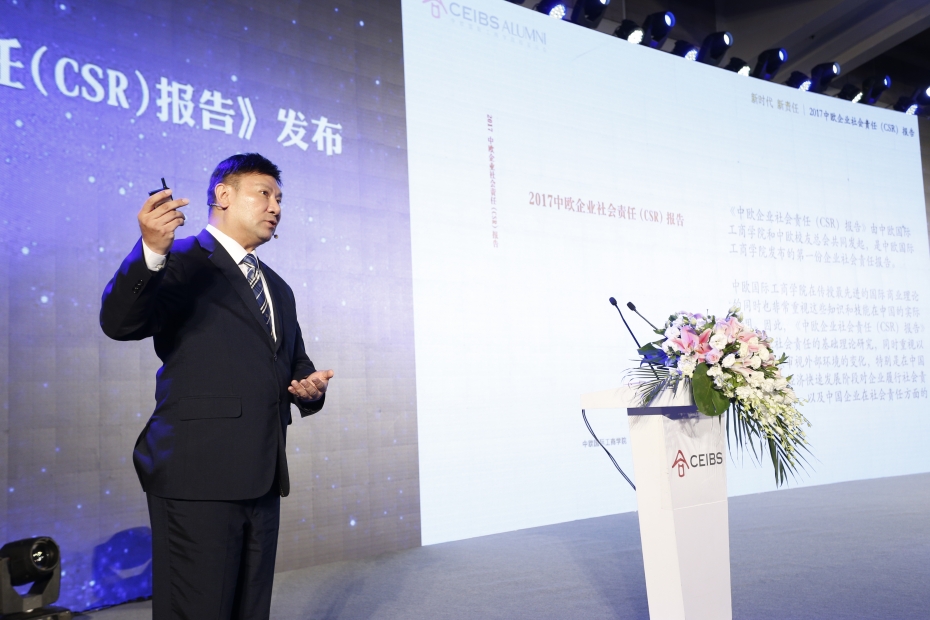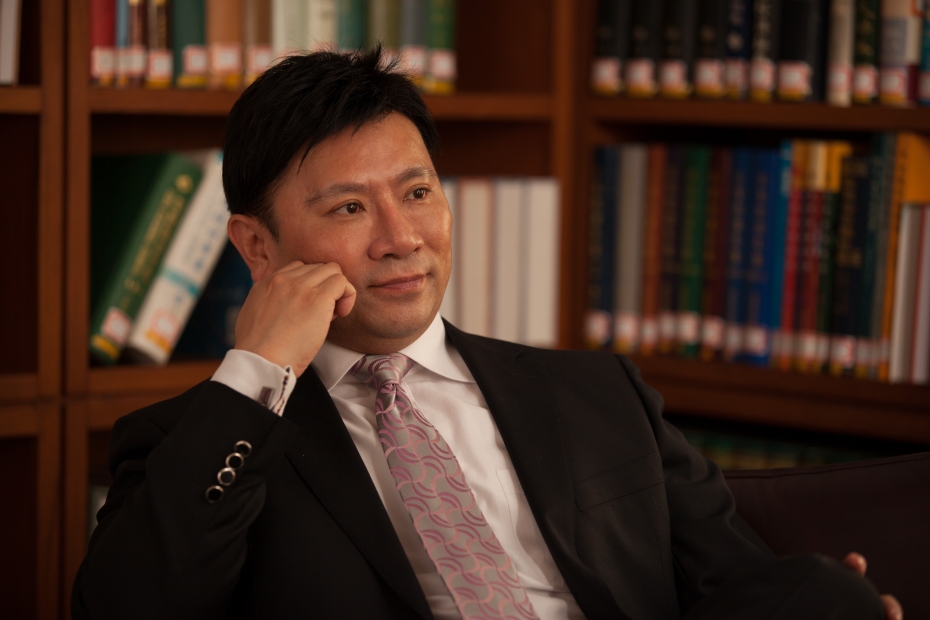Lasting Connections, Rooted in Heritage

Terence Tsai
Associate Professor of Management, CEIBS
I first connected with CEIBS a long time ago. It was during the final year of my Ph.D. studies at Judge Business School of the University of Cambridge in the UK. One day, one of my classmates, Keith Goodall (later one of the earliest international professors hired by CEIBS), asked me to write out some Chinese characters for him. I was happy to help. Out of curiosity, I asked about the reason why he needed them. He told me the characters were for a management course he was going to teach at a business school in China. Of course, I was also the final year of my Ph.D. — I would have been happy to teach at a business school in China after I graduated too. So, I asked him if he thought there was any chance that I could teach at the school as well. I was pretty positive because, in addition to my background, I was also a mandarin speaker. Unfortunately, for practical reasons, it wasn’t possible for me to apply for a position at the time.
Soon after I graduated, I went to teach at Ivey Business School in Canada. But, my mind was always tied to China and business schools in Asia because I was confident that Asia was set to realize some magnificent change and development in terms of its economy in the near future. At the same time, my Ph.D. supervisor, Professor John Child, was the Dean of the China Europe Management Institute (CEMI) in Beijing (the predecessor of CEIBS) and we communicated a lot about Chinese business’ development. After a few years in Canada, I was offered a faculty position at the Chinese University of Hong Kong, so I accepted the offer and came to teach in Asia. Another eight years passed, and in 2007, I was able to come to CEIBS as a core faculty member.

My most unique memory of CEIBS, was the feeling of family the school welcomed me with when I first joined. The first day I was officially on board, the entire faculty team came to welcome me. There weren’t as many people at CEIBS back then compared to now – in fact, there were only forty to fifty permanent faculty, and those regularly based in Shanghai numbered closer to thirty. Then Dean Rolf Cremer and Dean Zhang Weijiong also led a very memorable welcoming dinner for me. Soon after, I became really close with my colleagues and we got to know each other very well in terms of our backgrounds, professional fields and even foci of research. Such feeling of a closely-connected family was unique and I have seen it nowhere else at the business schools in the rest of the world. At the time I joined CEIBS, the school was ranked at around #98. Nevertheless, I genuinely believe that that first batch of colleagues I had here shared a similar ideology: they were bold, adventurous and entrepreneurial risk-takers, like myself. We were all confident that China would be the next important world economic hub and CEIBS would rise to the top in no time. This belief connected us closely.
At other business schools, academia is very good, but it is also often very detached from the business community and there is a very clear disconnection between the two worlds. In contrast, when I first came to CEIBS, I saw a much closer and tighter connection between the school and the Chinese business community – a connection that has been helpful to my professional growth in terms of learning what was really going on in China. Before I came to CEIBS, it was hard for me to comprehend why and how Chinese companies achieved such impressive successes or lost their competitive edges in such short periods of time. At CEIBS, however, I have had much closer relationships and more frequent interactions with China’s entrepreneurs, industry participants, business leaders and government leaders. Through these interactions, I have gained in-depth knowledge of the Chinese business community that I could not have acquired anywhere else. Moreover, through my close connection with CEIBS students, I have come to embrace the richness of the Chinese business community and have gained many important insights. This, in turn, has given me knowledge to conduct better research and improve my teachings. In short, CEIBS has taught me that you must know the facts, as well as “below the surface” details, thoroughly before you can speak in front of students.

That said, I believe the biggest difference between CEIBS and other business schools is our students. They are more demanding and more down-to-earth than other business school students that I have taught elsewhere. Students at CEIBS arrive here with very strong business and personal backgrounds. Their academic knowledge might not meet the highest standards, but their industry knowledge, instincts and experiences, are more sophisticated than any other business school students I have encountered. Unlike students at many overseas business schools, who come to school only to be inspired, CEIBS’ students come both to learn “practical knowledge” and to be inspired, and they want to learn quickly. As a teacher of strategy, I sometimes feel a wonderful “tension” between the students and myself in the classroom – or, more precisely, a tension between the students’ opinions and my teachings. Our students work very hard and they are attentive in class only because they know the theories and tools I teach might be useful in their work and because they have real business issues waiting to be resolved.
Any good business school must fight to become a leader of the world academia. That is an undebatable fact. I respect the effort CEIBS has made to elevate its academic contributions, but I also hope that the school can strengthen and sustain its core competences, especially as the level of competition in the market increases. CEIBS’ profound connection and rich interaction with the Chinese business community cannot be easily copied by other business schools and it is something which should serve as CEIBS’ competitive advantage. CEIBS should rely on this competitive advantage and continue to position itself as the business school with the best understanding of Chinese business. I also hope that CEIBS will continue to thrive as a leader in practice-oriented business schooling. Additionally, I believe that only when a group of scholars genuinely understand and care about China’s business development, can they make a real contribution to this community and the country. When I first came to CEIBS, my colleagues and I were in the company of these types of people. We had confidence that China would have a big impact on the world and we decided to join CEIBS in order to connect with the business community here and to offer our knowledge. But knowledge without practice is dead, and that is why I am more than happy to interact with students before and after class, even when it is time consuming. For, only when we establish a systematic understanding of their businesses, can we develop plausible solutions to their problems. Ultimately, this is something which could not be achieved without a platform like CEIBS. On the occasion of CEIBS’ 25th anniversary, I sincerely hope the school can delve even deeper into the Chinese business community and maintain a good, long-lasting and flourishing connection with this community, while continuing to be rooted firmly in its Chinese, European and international heritage.
Terence Tsai is an Associate Professor of Management at CEIBS. Prior to joining CEIBS, he served as Acting Associate Dean (Graduate Studies), Director of Centre for Case Teaching and Research and Acting Director & Associate Director of MBA Programmes at The Chinese University of Hong Kong. He has also served as a full-time faculty member at the Richard Ivey School of Business at the University of Western Ontario in Canada and Judge Business School at the University of Cambridge in England.














